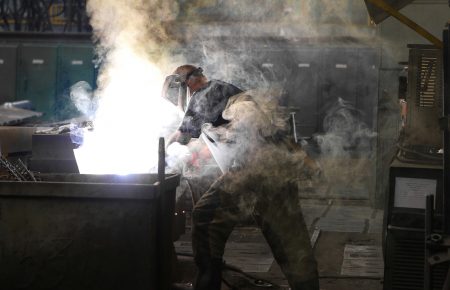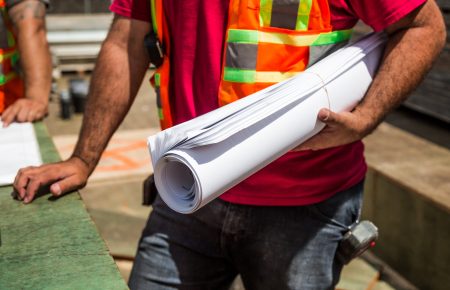With the Victorian and NSW Workers’ Compensation schemes failing injured workers and employers alike, and both states reeling from the economic impact of COVID-19, is privatisation of Workers’ Compensation the answer?
If we have learned anything in the last few years, from the interference of the Victorian Ombudsman in the Victorian scheme and the NSW scheme’s poor performance and ongoing revelations of serious misconduct, it is that politics has no place in Workers’ Compensation insurance.
With the costs in our two largest schemes blowing out significantly, reflecting a significant deterioration in return to work rates, as an industry, can we afford for the (mis)management of something as important as Workers’ Compensation to be left in the hands of government who appear more focused on responding to the loudest voice then they are in implementing legislation and ensuring the viability of their respective schemes?
| Claims Expenses | |||
| STATE | 2017/2018 | 2018/2019 | 2019/2020 |
| Victoria | $2.79 Billion | $4.53 Billion | $6.44 Billion |
| New South Wales | $2.24 Billion | $4.06 Billion | Not Yet Released* |
Information as per WorkSafe and icare Annual Reports
*NSW iCare scheme made a loss of $1.8 billion.
“The appropriate role for government in today’s personal injury insurance schemes is to be an independent regulator of the private sector, allowing a competitive market to increase productivity and maximise value for the community”
Chris McHugh
The management of Workers’ Compensation should not be something that is altered on a whim or the transfer of political power. The place of the government in Workers’ Compensation should be limited to legislation and regulation. Underwriting and claims management should be handed over to private insurers to operate within the respective legislations.
As Greg McCarthy has identified, Parliament sets the laws and parameters relevant to behaviour and activities in the state. Legislative framework does not allow us to decide what laws to follow or what laws to adjust in order to be in accordance with our own views.
“When laws exist, they are expected to be followed as passed by Parliament”
Greg McCarthy
Despite this, we have seen significant changes in both Victoria and NSW based on individual opinions of how the schemes should operate, all of which appear to have given little consideration to either the overarching legislation or the necessity for the financial viability of the respective schemes.
And aside from the individuals who have driven them, who have these naive but potentially well-intended changes benefited?
No one!
What we have seen is a deterioration in return to work rates, an increase in claims expenses and an increase in employer premiums.
Deterioration in Return to Work Rates – Bad for workers
The biggest losers in Victoria and NSW, because of the changes that have taken place, are the injured workers, the very people that Workers’ Compensation schemes are meant to support.
One of the key roles of any Workers’ Compensation scheme is to assist injured workers in returning to work. In this regard, the failures in Victoria and NSW are bordering on catastrophic for injured workers.
There is overwhelming evidence that long-term work absence is harmful to a worker’s psychological and physical wellbeing.
“…long term worklessness is one of the greatest risks to health in our society. It is more dangerous than the most dangerous jobs in the construction industry, or [working on an oil rig in] the North Sea, and too often we not only fail to protect our patients from long term worklessness, we sometimes actually push them into it, inadvertently .. .”
Professor Gordon Waddell
Any scheme operating in a manner that perpetuates absence from work, as we are currently seeing in Victoria and NSW, is failing injured workers.
Overall, the question must be asked: if these schemes were privatised, would these changes, that have seen disastrous results for injured workers, have been implemented?
“[Private] insurers have a strong incentive to act quickly in order to help people recover as soon as possible. A quick recovery is preferable for the customer, and it minimises the cost of the claim to the insurer”
Chris McHugh
Increasing claims cost – Bad for the schemes
In the early 2000s in Victoria and in 2015 in NSW and South Australia, sweeping changes were made to legislation that adversely impacted injured worker benefits. These changes were made to rectify failing schemes that had fallen billions of dollars into deficit.
(Indeed, as at June 2020, the NSW balance sheet is now negative $316 million.)
If we continue down the current path in Victoria and NSW, we will see both schemes return to deficit. As Greg McCarthy identified with the South Australian scheme, you can only squeeze employers for so long before you are required to the lock the average premium rate at a level substantially below the breakeven rate (South Australia – 2.75% v 3.34%).
In this situation, the outstanding claims liability will continue to grow, eventually leaving both states with no choice but to review entitlements and make further changes to ensure the ongoing viability of the scheme. These changes will once again adversely impact injured worker entitlements.
“The NSW Government was left in the difficult position of either having to increase premiums for employers or reduce the benefits for injured workers, in order to fix the problem. They chose to reduce benefits.”
Chris McHugh
If we fail to address the significant deterioration before Victoria and NSW return to deficit, the ultimate outcome will be detrimental to injured workers, and vastly contrary to the outcomes that the people pushing these naive agendas are trying to achieve.
Increasing Premiums – Bad for economies
For medium-to-large employers, not only is Workers’ Compensation one of their largest business expenses, in Victoria and NSW it is the line of insurance that they feel they have the least control over.
Many employers have identified that they have little to no input into the outcome of their Workers’ Compensation claims. Left to cover increasing claims costs through rising premiums to a point where if their premiums continue to rise, they will be forced to close their doors.
A PWC report commissioned by Suncorp in 2014 identified that privatisation of NSW’s Workers’ Compensation scheme would increase the state’s gross state product by $3 billion dollars over a 10 year period.
If we adjust this figure upward to allow for the passage of time, and if we estimate a proportionate figure for Victoria, given the current and future economic burden created by COVID-19, the privatisation of Workers’ Compensation in Victoria and NSW could provide some of the economic boost these states need to recover.
It is evident to those of us working in the industry that the government-funded schemes in Victoria and NSW are failing. To a large degree it appears that these failings relate to the arbitrary changes to the management of the schemes made due to media scrutiny, political manoeuvring and misguided intentions. All of which have failed to, firstly, question the impact of these changes on the financial viability of their respective schemes, and secondly to provide appropriate regard for the intent of the legislation passed by their respective parliaments.
It is further evident that the employers, workers and economies of these states would all benefit greatly from privatisation. The question is, can the respective political parties put aside their egos and agendas long enough to make the hard but necessary decisions to address the state of Workers’ Compensation in Victoria and NSW before we once again end up with schemes in financial ruin?
References
Chris McHugh – “The impact of privatising personal injury insurance schemes”
Greg McCarthy – “Insights for success in work injury insurance”
Professor Gordon Waddell – “Work, good for your patient’s health and wellbeing”
Disclaimer: This article provides general advice and should not be considered legal advice or an insurance consultation. You should seek appropriate counsel for your own situation. In addition, this post is directed at people in Australia. If you are outside Australia, please be aware that the circumstances in your own country may be different.























































Claude Ramains
Privatising workers comp would have exactly the same affect as everything else thats been privatised.
Higher costs and less service still underscored by massive incompetence and failures to the ones the service is supposed to help.
After all the brazenly scathing exposures and reports on Vic work safe and their disgustingly greedy insurance companies the best remedy would be to send the boards of directors to gaol along with the CEOs.
Some of the upper management and ministers responsible should see the same fate…and they should be publicly shamed along with Reco laws for all the $ they’ve ripped off from the in injured workers and wrongful deaths they have caused.
The reason things keep going the way they are and injured workers are suffering, languishing and dying in the system is because there really has been NO REAL ACCOUNTABILITY for those who should be held accountable.
just shifting paperwork, shredding documents, finger pointing and playing musical CEOs doesn’t make any in injured workers better. It makes them worse because they can see whats going on.
Debra Glass, the Vic Ombudsmans last investigation and report ( after 3 others over the last 10 years) called them “Immoral, unethical and UNJUST!!!!!”…she just stopped short of calling them criminals.
But some would go right ahead and call them that.
If they were really called what they are and prosecuted under the law for what they are doing to the injured workers with very public punishment according to the legislation (which they flout and abuse all the time) then everyone governing what happens in work cover would be to scared to put a foot wrong.
No privatisation needed.
But heres a novel idea….how about Workcover and their insurance companies actually follow the legislation and adhere to their contract without finding shifty ways around it then maybe they’ll actually make some money and (horror of all horrors!) injured works might actually get better.
Its strange that nobody has even thought of that option.
Is there anybody with integrity out there that can do that? I doubt it.
admin
Thanks for your comment. You are correct that the situation is frustrating for everyone and something needs to change. However, if you read our previous article on the Ombudsman’s report, you’ll see that it did not address any ways to improve outcomes for injured workers. In our blog, we did actually highlighted ways to achieve better outcome, which would be more likely to occur under a private system:
https://www.aegisrms.com.au/blog-post/what-the-victorian-ombudsman-doesnt-understand-about-workers-compensation/
Miss Congealed Reality
Privatise the workers compensation system?…. Oh the horror!
That’s like putting the foxes in charge of the hen house.
It’s the private and thoroughly corrupt private insurance companies that contract with Workcover that have taken the govt & politicians captive. It’s the private sectors handy work that is the biggest problem for profits and injured workers.
That’s not to say that politics is innocent. It’s not. But the only people who are benefiting from the workers compensation system is the insurance companies.
Not the injured workers.
Who ever wrote this article might be very learned with figures and statistics but they really have no idea what’s going on in this system to recommend such a change.
The whole system, workcover, the politicians and the insurance companies have thoroughly discredited themselves over the years and have been publicly disgraced by the media, the Royal Commission & the numerous scathing ombudsman’s reports.
I don’t know what the answer is but privatisation isn’t it.
admin
We understand that the scheme is frustrating for all concerned: employers, insurers and injured workers. However, the Ombudsman’s report did not actually address what could be done to help injured workers. Refer to our blog on the Ombudsman’s report, which identified some ways to achieve better outcomes for injured workers:
https://www.aegisrms.com.au/blog-post/what-the-victorian-ombudsman-doesnt-understand-about-workers-compensation/